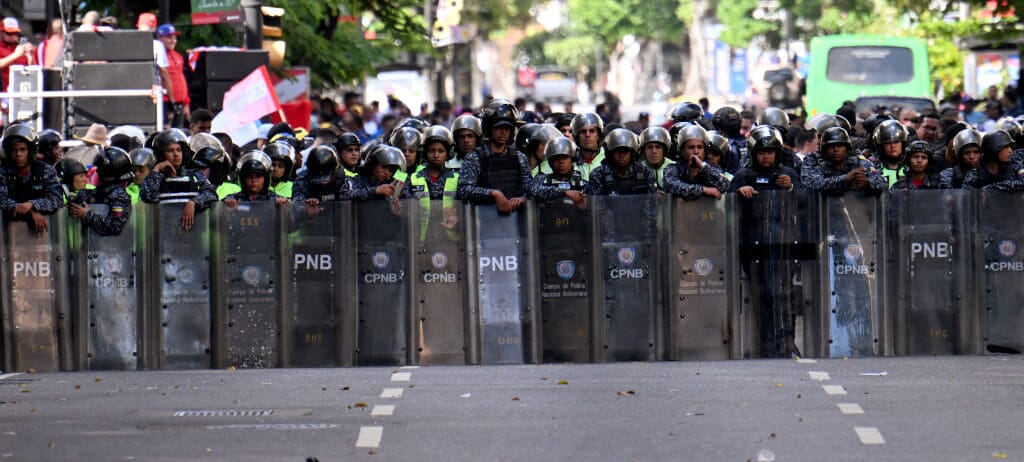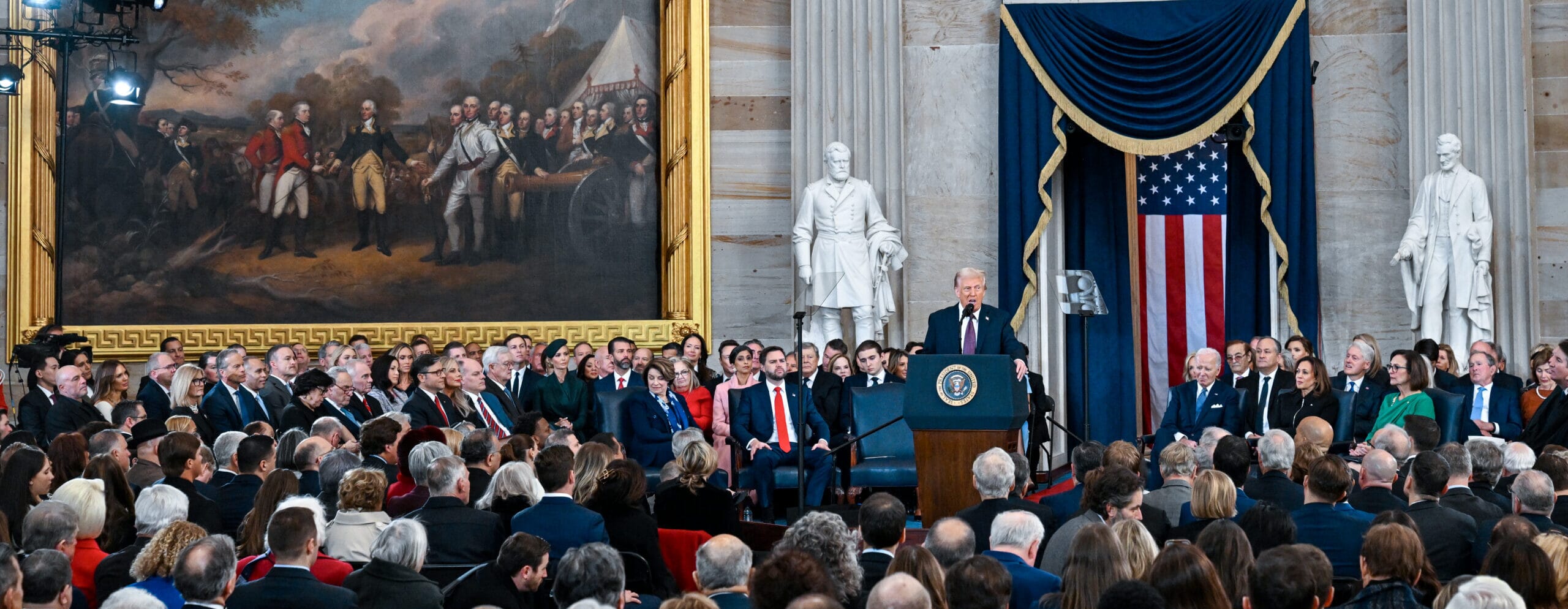News
From Narcos to FTOs: The US government’s new front against cartels

The US government has made a dramatic shift in how it combats transnational cartels. In early 2025, the Trump Administration directed the State Department to formally designate several major cartels and gangs as Foreign Terrorist Organizations (FTOs). Eight groups – including Mexico’s Sinaloa Cartel and Jalisco New Generation Cartel (CJNG) – were officially labeled as FTOs and Specially Designated Global Terrorists (SDGTs). At the same time, the Department of Justice announced it would shift its corporate crime enforcement, directing the Foreign Corrupt Practices Act (FCPA) unit to prioritize cases where bribery or corruption facilitates cartel activity.
These changes mark a major expansion of US enforcement strategy and could affect businesses operating in regions with heavy cartel influence. Designating cartels as FTOs means that providing any support – even unwittingly – to these groups can trigger criminal liability under US anti-terrorism laws. Meanwhile, corporate payments that benefit cartels or their enablers now carry heightened FCPA and sanctions risk, especially if those payments involve foreign officials. In short, businesses may face greater legal and reputational risks for operations in cartel-affected markets.
US efforts against drug cartels have traditionally fallen under narcotics and organized crime enforcement. For decades, US authorities relied on drug trafficking laws, economic sanctions (like the “Kingpin” designations of cartel leaders), and racketeering statutes to disrupt cartel operations. Cartels were viewed as adversarial criminal enterprises – but not on par with terrorist groups – and US policy focused on law enforcement cooperation and financial blacklisting rather than counterterrorism measures. This began to change as cartel violence escalated and spilled across borders. High-profile atrocities, like brutal attacks on Americans in Mexico in 2019, prompted calls in Washington to treat cartels as national security threats rather than just criminal gangs.
Meanwhile, the Foreign Corrupt Practices Act of 1977 has long been the US government’s chief weapon against business bribery abroad. Historically, the FCPA is aimed at companies paying off foreign government officials to gain business advantages – for instance, bribing an elected official to win a contract. It has not been used to prosecute payments to purely private criminals like cartel bosses, since the law targets corruption of public officials. Companies caught in cartel turf sometimes argued in fact that any money they gave was paid under duress (extortion), not a “corrupt” bribe, and thus outside the FCPA’s scope.
Today, the boundary is more blurry. Cartels often now intersect with government actors, infiltrating local police, customs authorities, and in some cases holding public office. As a result, payment to a cartel could effectively be a payment to a foreign official acting on the cartel’s behalf. In essence, the US is expanding the legal framework to reach not only those who pay bribes, but also those who shake down businesses – a commonplace occurrence in cartel-dominated jurisdictions.
In his first days back in office, President Trump issued Executive Order 14157, declaring that international cartels pose an “unusual and extraordinary threat” akin to insurgencies and directing that the US pursue the “total elimination” of these cartels. The order frames certain cartels as “quasi-governmental entities” controlling territory through terror – language typically reserved for militant insurgencies. Following this order, Secretary of State Marco Rubio moved to formally designate prominent Latin American cartels as terrorist organizations. In February 2025, the State Department classified eight groups – including Mexico’s six most notorious cartels, a Venezuelan gang (Tren de Aragua), and MS-13 of Central America – as FTOs. These designations underscore that, in the eyes of the US government, cartels are no longer just “narcos” running drugs; they are tantamount to Islamic State or al-Qaeda in how they threaten US security and interests
Labeling cartels as FTOs activates a host of powerful legal tools previously unused in the fight against drug traffickers, namely the “material support” statutes. Under US law, it is a federal crime to knowingly provide an FTO with “material support or resources,” broadly defined to include any property, services, financial support, or even personnel. For example, paying “protection money” to a cartel that is now an FTO might be viewed as akin to financing terrorism. There is some precedent for this: in the 2000s, Chiquita Brands International was prosecuted for paying off a Colombian paramilitary group (designated as a terrorist organization) to protect its employees, resulting in a $25 million fine. More recently, French building materials manufacturer Lafarge pleaded guilty for funneling payments to ISIS to keep its Syrian cement plant running, incurring $778 million in penalties. But the biggest cost is the reputational damage caused in these instances, which can take years to overcome.
Conversely, routine FCPA cases unconnected to organized crime will evidently take a back seat for now. Attorney General Pam Bondi issued an unusual memo suspending new FCPA investigations that don’t involve national security concerns, essentially to ensure focus on cases with a cartel or terrorism nexus.
For companies, the message is clear: if your business is caught bribing officials and that bribery even indirectly furthers cartel activity, you could soon find yourself in the crosshairs of the Justice Department. Naturally, this also heightens the reputational stakes for companies as well, as any firm caught paying off a cartel or turning a blind eye to cartel use of its services could be branded as effectively supporting terrorism.
For firms operating in Mexico, Central America, or parts of South America, this raises the bar for due diligence. Sectors like energy (e.g. oil, mining), logistics, agriculture, and manufacturing often operate in areas where cartels hold sway. Companies must treat this as a wake-up call that interactions with cartels – whether through bribery, extortion payments, or neglectful oversight – carry unprecedented risks.
Key implications for multinational firms are:
- Stricter compliance and monitoring: Authorities in the US will expect companies to integrate cartel-related risk into their compliance programs. This means bolstering anti-bribery controls, sanctions screening, and AML (anti-money laundering) measures in high-risk regions. For example, transactions or third parties that might be connected to a now-designated cartel should trigger red flags and enhanced scrutiny. Compliance officers should update their risk assessments to treat cartels similar to terrorist or sanctioned entities.
- Third-party due diligence: A critical focus will be on supply chains, agents, and local partners. Cartels often operate through front companies and intermediaries, making it hard to tell who you’re really dealing with. Companies must know their customers and suppliers more deeply than before. Enhanced due diligence (and ongoing monitoring) is needed to spot hidden ties to cartels – for instance, if a raw material supplier is secretly controlled by a cartel, or if a distributor in a remote region must pay “fees” to a local cartel. In practice, this may require stricter onboarding checks, periodic audits of third parties, and certifications that counterparties are not involved with designated organizations.
- Updated compliance procedures: Companies operating in areas with strong cartel presence should consider establishing clear protocols for handling extortion or violent threats. Firms need plans that include engaging law enforcement authorities, relocating personnel, or even evacuating operations, rather than making illicit payments. As one advisory suggests, developing crisis response plans for handling extortion demands or “requests” for bribes (and documenting that response) is important. Training local managers on how to respond (and whom to alert) in such scenarios is equally important, so that panicked decisions in the field don’t become legal issues later.
- Heightened scrutiny: We can expect US federal law enforcement agencies to scrutinize companies in cartel-heavy jurisdictions more closely. This could mean more FCPA investigations branching out from major cartel cases, or even multi-agency task forces looking at how legitimate businesses may be entangled with cartels. Companies may also be incentivized to voluntarily report any known incidents of cartel-related payments. Reputational due diligence by third parties will also increase, effectively making strong compliance a competitive advantage.
- Sector-specific challenges: Certain industries will face unique challenges in adapting to this new environment. Energy and extractives companies often operate in remote areas where cartels or insurgent groups hold power; they will need to invest in security and community engagement programs that do not devolve into protection payments. Logistics and transportation providers must guard against their networks being used by cartels (for smuggling drugs, weapons, or people) – if a trucking company’s employees collude with a cartel to move contraband, the company itself could be accused of providing material support. Manufacturers and agricultural firms might have to vet their raw material sources to ensure they’re not indirectly financing cartels (e.g. buying coca leaf from areas controlled by militants or paying “taxes” to cartels for safe passage of goods). In all cases, the cost of compliance is likely to rise, as companies implement stronger controls to meet these new expectations.
For those in corporate compliance departments, key questions to ask include: Do we know who our local partners really are? Are we certain none of our payments or products could be diverted to cartel hands? Do our employees on the ground have clear instructions (and support) to resist and report any cartel extortion attempts? By investing in stronger controls and a culture of compliance, businesses not only avoid legal troubles but also help starve cartels of the resources and cover that enable their destructive operations.
Contact us today to discuss how our expertise can support your organization in navigating FCPA, sanctions, and anti-terrorism regulations.
Newsletter signup

Intelligence delivered ingeniously
Helping key decision makers, make the right commercial decisions

